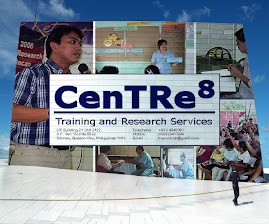This is a brief history on CSR...
The United Nations, through the UN General Assembly's Millennium Declaration in September 2000, embarked on an initiative to "halve, by the year 2015, the proportion of the world's people whose income is less than one dollar a day and the proportion of people who suffer from hunger and, by the same date, to halve the proportion of people who are unable to reach or afford safe drinking water." While the community of nations agreed on this, the United Nations still acknowledged the role of private sector and civil society organizations in attaining the millenium objective. This call for strong partnerships with the private sector evolved to what is now commonly referred to as corporate citizenship.
Although largely encouraged, the involvements of multinational corporations (MNC) in development initiatives were not triggered by the U.N. Millennium Declaration. Various programs were already implemented and geared towards poverty alleviation, education and health immediately following the Second World War until the late 1990s. However, these initiatives usually came in the form of philanthropic aid and did not actively involve local communities in the planning and implementation processes (Ciba-Geigy Public Relations, 1985: 19; Madeley, 2002: 35; Paul et. al., 2003: 1; World Business Council for Sustainable Development, 2004: 13).
The introduction of CSR created a new approach in management where doing business with the poor was done "in ways that benefit the poor and benefit the company' (WBCSD, 2004: 14). As a result, major MNCs and Small & Medium Enterprises (SMEs) are now into the CSR arena to gain leverage over competition, and to provide services to communities within their sphere of corporate operations and employee competencies (Corporate Social Responsibility and Sustainable Competitiveness, 2004: 1-3).
Subscribe to:
Post Comments (Atom)



No comments:
Post a Comment